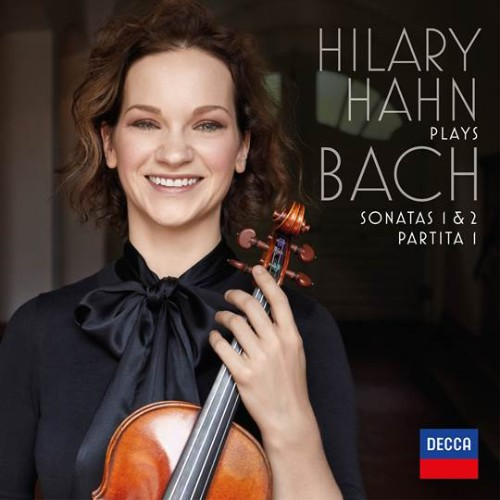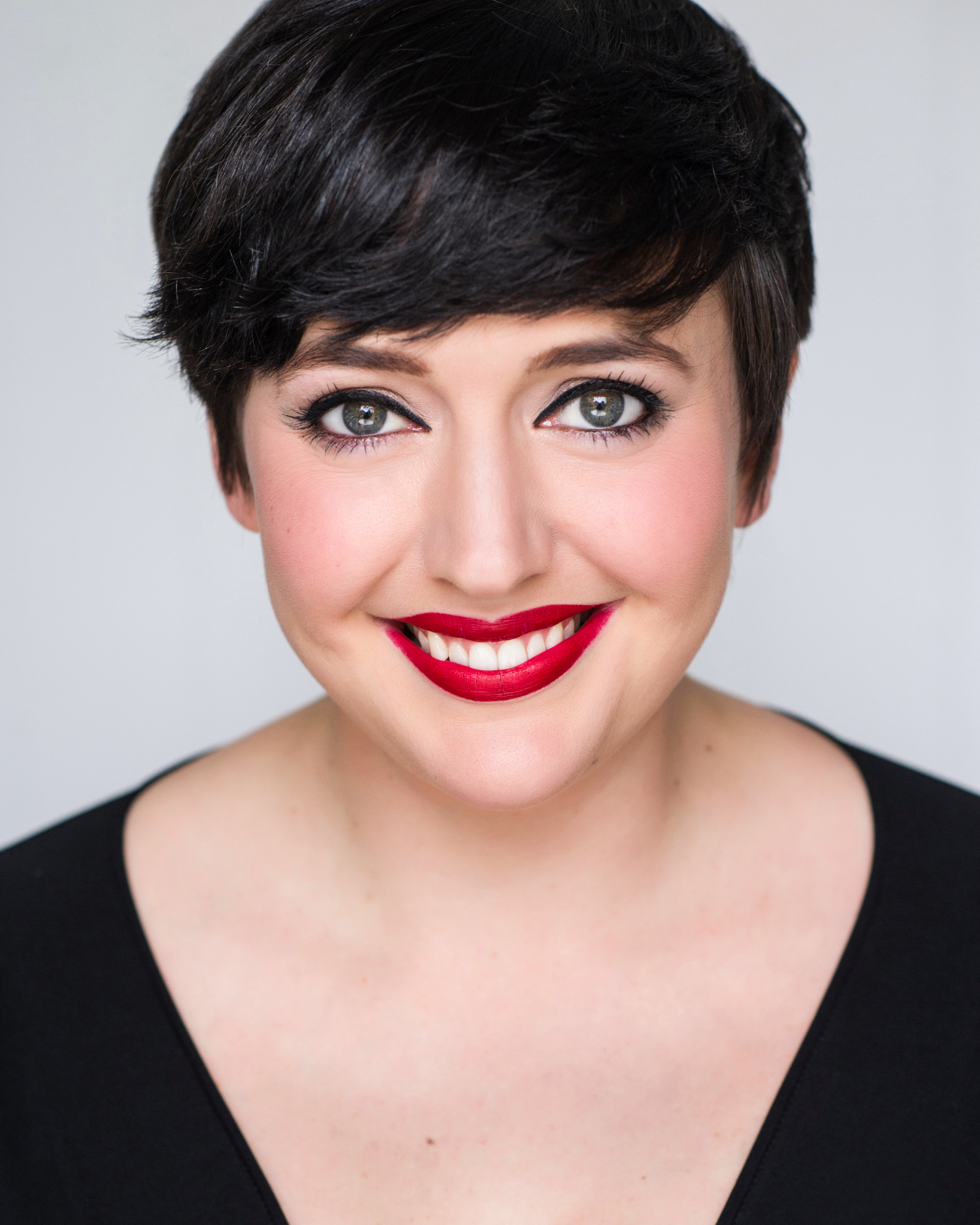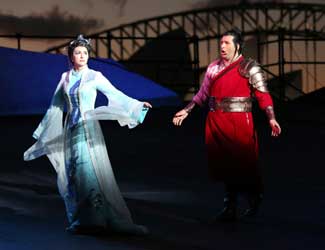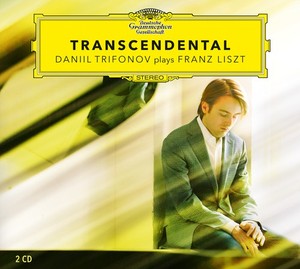Italian Double Debut For Shanul Sharma
In May, tenor Shanul Sharma debuts in the role of M K Gandhi for Opera Australia’s premiere production of Philip Glass’ minimalist masterpiece Satyagraha. This is a reprint of an interview we did with him prior to his appearance at the Festival Lirica in Vicenza in 2021 in the title role of Mitridate re di Ponto.
Tenor Shanul Sharma is off to Italy shortly to notch up a double debut. Sharma will not only make his debut in the title role of the 1770 opera Mitridate re di Ponto, it will also be his first venture into Mozartian opera.
Sharma will take the stage at the Festival Lirica in Vicenza in September for two performances at the Teatro Olympico, a theatre steeped in history. Built between 1580–1585 it was the final design by the Italian Renaissance architect Andrea Palladio who did not live to see it completed. The trompe-l’œil scenery conveys the impression of long streets disappearing into the distance and date from the first performance held in the theatre in 1585. It is still the oldest surviving stage set in existence.
Mozart wrote Mitridate when he was just 14 whilst in Bologna, touring with his father Leopold. It was his first opera for a festival and premiered at the Teatro Regio Ducale, Milan, in December 1770 and was warmly received with twenty-one performances despite the doubts surrounding Mozart’s extreme youth. It even earned him more commissions for Milan. (The Teatro Regio Ducale was to become the Teatro alla Scala after the original building burnt down in 1776).
Forgotten until the 20th century, Sydney saw Mitridate performed at the Capitol Theatre in January 2001 as part of the Sydney Festival. Directed by Graham Vick and revived by Patrick Young, it was conducted by Richard Tognetti with John Heuzenroeder as Mitridate, Emma Matthews as Ismene and Bejun Mehta as Farnace. This production had been created 10 years earlier for the bicentenary of the Royal Opera, Covent Garden. An impressive history.
Mitridate is an opera seria brimming with virtuosic da capo arias for the principals and ample opportunities for Sharma to show off the exceptional range, flexibility and timbre of his voice. Mozart wrote the role for Guglielmo d’Ettore, a singer who specialized in wide leaps. Being on hand, Mozart was required to rewrite several arias to suit his cast before the singers were content. The end result more than justifies the revisions. As well as the massive changes in register, Mitridate’s arias range from the lyrical to the angry, full of trills and ornamentation as well as sublime lines of legatissimo. Just listen to Mitridate’s opening aria Se di Lauri (which Mozart revised five times before d’Ettore was happy) and you will get the picture.
Speaking to me in Sydney where he is rehearsing for Opera Australia, Sharma is elated. “It’s going to be my first ever Mozart so I’m very, very excited about it. It came about through a few sources – work I’d done in Europe, at the Bolshoi and other places I’d sung in Italy. I was recommended for the role and I’m very happy to sing in such a historic theatre.”
Sharma is under no illusions that the role will be a technical challenge, requiring stamina and agility. Unusually for Mozart, there is little ensemble work. The writing is mostly for soloists. “The melodies are absolutely gorgeous, but demanding for the tenor in its writing. The way tenors sang the role back then was very different to the way we sing it now. First, the pitch is different; second, the approach to the voice – the tenor then would have sung the high notes in a falsetto voice but we don’t do that anymore. The jumps in range are quite perilous and in a very strange analogy it reminds me a lot of singing Der Student in Ghost Sonata (Opera Australia’s production of Aribert Reimann’s setting of August Strindberg’s 1907 play), which I performed in Sydney and in Melbourne for Opera Australia. That role also had these sorts of vocal leaps and was of a high tessitura. Now that is modern music but the two are somewhat linked, technically speaking, and I will have to call upon that experience to lay down a solid foundation. But once the music takes hold you sink into it and let Mozart speak through your voice. But in the beginning, I think I’ll have to approach it in a very technical fashion.”
The highest note Sharma will sing in Mitridate is “only” a high C. “But in Ghost Sonata I had to sing E flats,” he says self-effacingly. “The way the high notes are written, Mozart grounds you which is a good thing- but you may still have to sing notes an octave or more apart, so technically you have to be very, very secure. Also, with Mozart – the vocal line is paramount. You’re the vocal instrument for what he is trying to convey through music. So, you have to keep that in mind and the legato line has to be absolutely pure. You have to pay a lot of attention to the purity of the legato.”
“This music is revered in northern Italy. That entire region was graced by the presence of composers like Vivaldi, Albinoni and Caldara. Baroque style is unique, and you have to approach the language in a different way to how one would sing an opera from the 1800s for example. They’re poems so you have to work in the rhyming factor and the different emotional quality when it comes to portraying and early music role compared to the music of the 1800s. to an 1800.
Sharma plans to leave for Italy straight after The Tales of Hoffmann which will finish in mid-August. “I might have to quarantine it Italy and there are just so many variables at the moment, depending on vaccination status and requirements in Italy. Until then I will just prepare the role with my coaches here and get straight into rehearsals in Vicenza – it should be good fun!”
It’s a welcome opportunity for Sharma who has had several contracts cancelled during the course of the last 18 months. “As artists, anxiety about the future can rob us of some performance energy. And then the art suffers. Art must be complete always and filled with all of our creative energies.”
“As artists were on the edge and it’s hard to give everything to a performance if you’re worried about whether it will even go ahead what’s going to happen if I can’t pay my bills. If you worry about those things, the art suffers. The art has to be complete.”
Appearing with Sharma will be Nina Solodovnikova as Aspasia, Darija Auguštan as Sifare, Franko Klisović as Farnace and Martina Licari as Ismene. The Orchestra del Festival Vicenza in Lirica will be conducted by music director Luca Oberti and baritone Natale De Carolis will direct the production. There is another Australian connection with a part production of Mitridate at Vicenza. The 1986 production featured Yvonne Kenny, fabulous as Aspasia, a production which can be viewed on YouTube.
We can only hope that Shanul Sharma will have the opportunity to reprise this exceptional role as Mitridate in Sydney and that opera lovers will be able to relish this operatic masterpiece by the young Mozart.
Shamistha de Soysa for SoundsLikeSydney©







